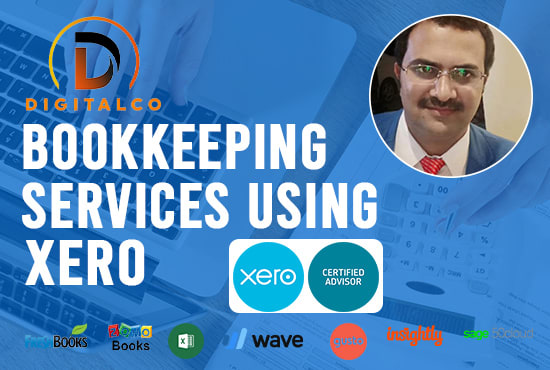COVID-19 Tax Relief 2021: A Small Business Owner's Guide
Those searching for slight business tax relief will be pleased to discover that the Covid-19 epidemic has resulted in implementing several new measures.
A Guide On
How to get Covid-19 Tax Relief
Go here:
●
How Will My PPP Loan Affect My Taxes Under the CARES
Act?
●
What You Should Know About Small Business Taxes in
2020
●
For the 2020 tax year, there is a new small business
tax deductions.
●
For the 2020 tax year, there are recent small
business tax credits.
●
Is it Possible to Extend Small Business Taxes in
2021?
●
Tax Relief for Small Businesses
How Will My PPP Loan Affect My Taxes Under the CARES Act?
The COVID-19 pandemic prompted the introduction of the CARES Act, which aims to assist small company owners struggling. The best part is that forgiven PPP loans will not be considered gross income and will not be taxed by the federal government.
Depending on where your firm is located, you may or may not have to pay state taxes on the PPP loan. Qualifying costs paid with forgiven PPP loan money or EIDL funds can also be deducted. The following expenses are eligible:
●
Rent
●
Personal protective equipment (PPE) costs
●
Mortgage interest
●
Public disturbances caused property damage that was
not covered by insurance.
●
Several operational costs
●
Please contact your tax advisor for more details on
whether expenses may qualify.
What You Should Know About Small Business Taxes in 2020
Many businesses barely made it through the global pandemic, lockdowns, and following an economic downturn. When cash is already in limited supply, the prospect of submitting tax returns and paying small company taxes can be daunting.
There are, thankfully, ways to reduce your small company income tax liability and obtain slight business tax relief. You can begin by seeking tax exemptions and small business loans.
You can work with
your accountant or go to the IRS website to determine what deductions your company
is eligible for. You can also learn more about tax credits by visiting the IRS
website.
For 2020
Tax Year, There Are New Small Business Tax Deductions
Exemptions always give somewhat tax relief for small businesses. You'll be capable of making use of the newly announced 2020 small company write-offs this year, thankfully.
- Financial Support for Employees Affected by the Covid-19 Epidemic: If you gave your employees financial assistance due to the Covid-19 pandemic, you could offset those payments.
- Deductions for additional interest: For the 2020 tax year, the deduction for business financing expenses has been doubled from 30% to 50%.
There Are New
Small Business Tax Credits
Small company owners who the Novel has impacted may be eligible to receive tax incentives in 2020. On the IRS website, you can learn more about employer tax credits.
Employee Retention Tax Credit (ERTC):
This tax credit is
available to small enterprises that were partially or wholly closed in 2020
owing to lockdown orders, as well as businesses that saw a significant drop in
gross receipts compared to 2019. The ERTC gives small businesses tax savings
equal to 50% of qualified wages earned after March 12, 2020, up to $10,000 per
employee.
Tax Credits for Sick and Family Leave
Employees who missed
work due to illness, quarantine, caring for someone with Covid-19 or caring
for children affected by school and daycare closures may be eligible for tax
credits that offset the expense of sick pay. Credits for an employee healthcare plan
expenses are also included.
Is it
Possible to Extend Small Business Taxes in 2021?
Yes! As a result of the Covid-19 outbreak, small businesses have experienced huge hurdles. As layoffs became more common, many business owners were forced to pick up extra slack, while others had to adjust to shifting conditions.
As business picks up, many have begun retiring, but they are still dealing with the effects of lower cash flow. If this is the case, you might think about requesting a tax extension. You can get an extra six months to file your taxes by requesting a tax-filing extension.
Keep in mind that a tax-filing extension delays your timeframe for filing. You must still pay your tax due by the time set by your organization, or you will be charged late penalties, fines, and interest on the outstanding sum.
Your Business Structure Has an Impact on How You Ask for a Tax-Filing Extension
- Through the IRS's payment portal, sole proprietors and single-owner LLCs can pay their estimated taxes and seek a tax-filing extension.
- Filing an IRS Form 4868 is required for sole proprietors and single-owner LLCs who want to request a tax-filing extension in addition to paying estimated taxes.
- Partnerships, S Corporations, and C Corporations must file IRS Form 7004 to obtain a tax-filing extension.
If you're concerned
that you won't have enough money to pay your estimated taxes when they're due,
you might want to look into other options for increasing your cash flow before
the deadline, such as applying for funding.
Tax Relief for Small Businesses
When it comes to minimizing your tax burden, additional tax deductions and credits might be highly beneficial. However, as helpful as they are, many organizations may still struggle to pay taxes in 2020.
If you're having trouble keeping up with your working capital, you may need to look into other trim business tax relief options, such as applying for a loan. A small company line of credit is a flexible method of financing that requires no interest payments until you begin borrowing money.
You can also utilize the additional funds to pay other unexpected expenses, hire new employees, or invest in new revenue streams. You can get free consultation and advice about tax preparation and filling.





Comments
Post a Comment